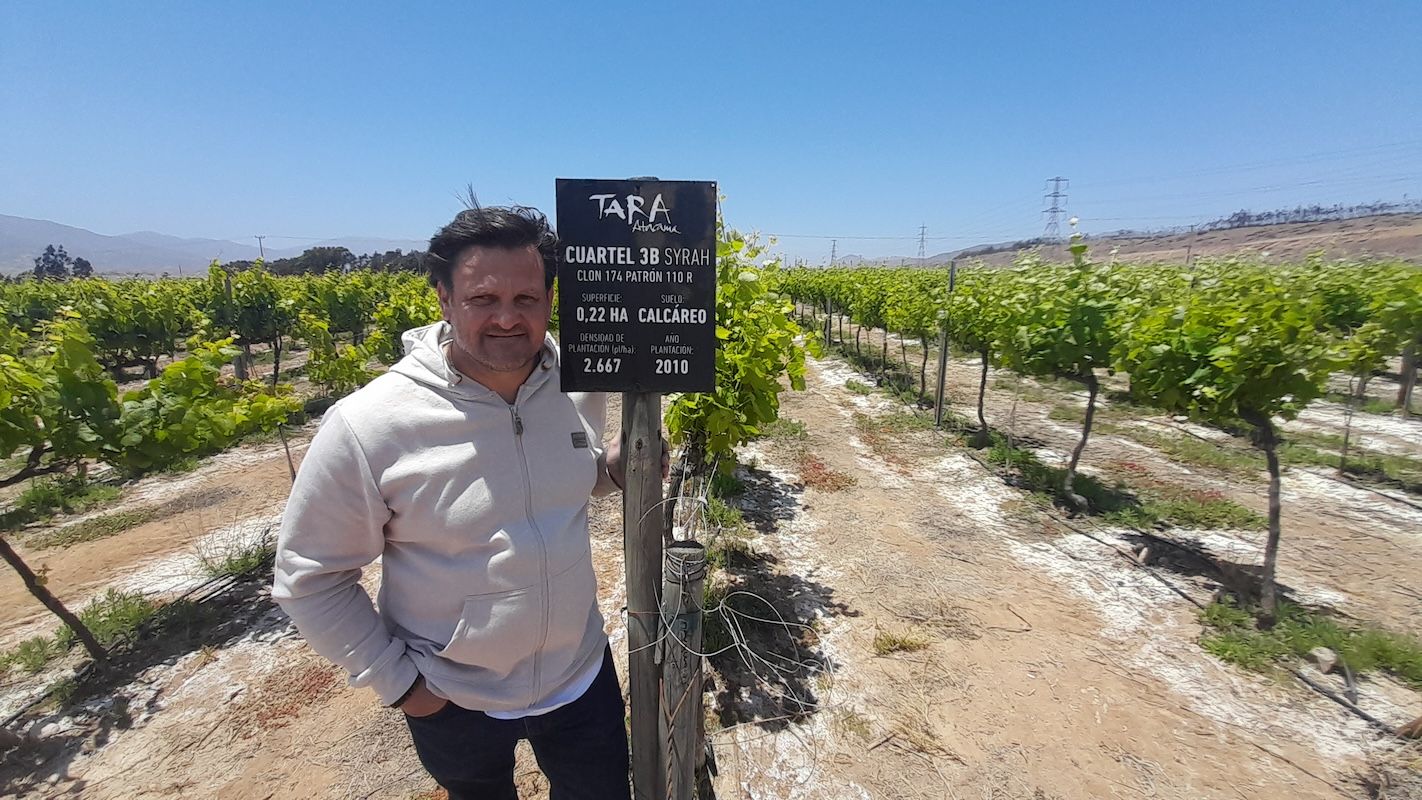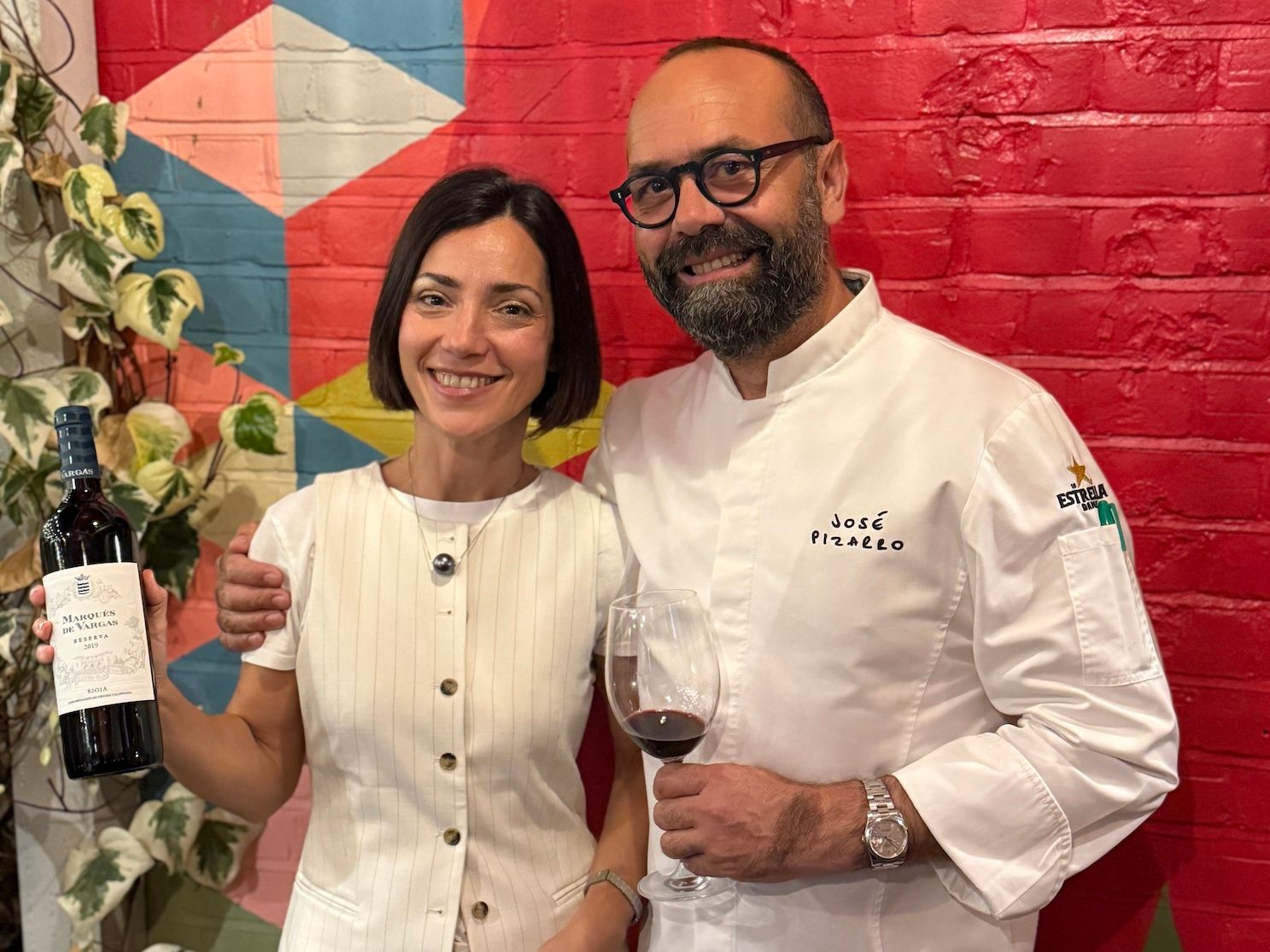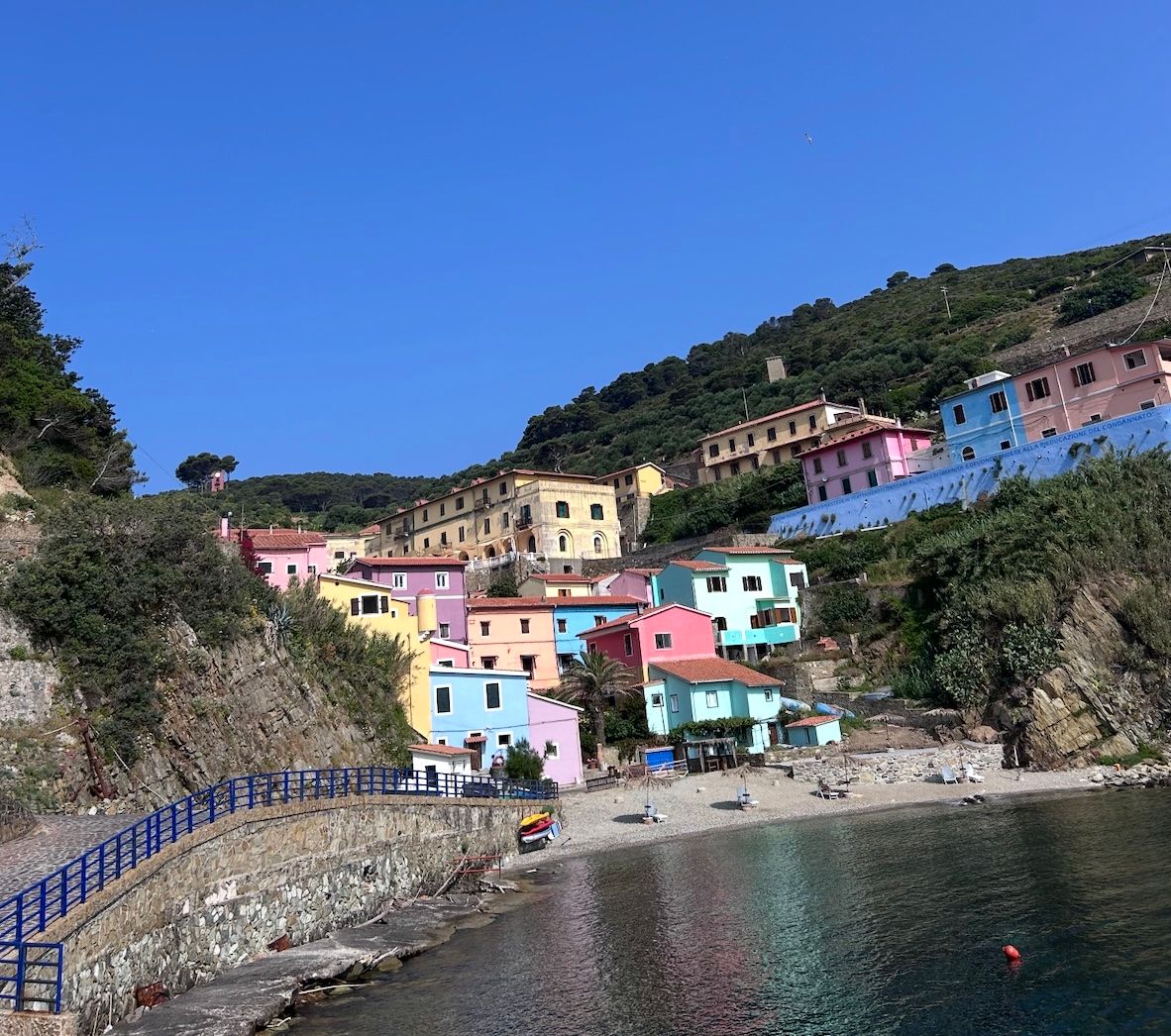Anne Burchett took a break from the wine industry in 2008/2009 to do an MA in Creative Writing at Kingston University. She not only used that time to learn now to write, but she turned those new skills into her first book. Here, before we publish the first chapter, she explains why she has decided to release it as a serial online, a chapter at a time.
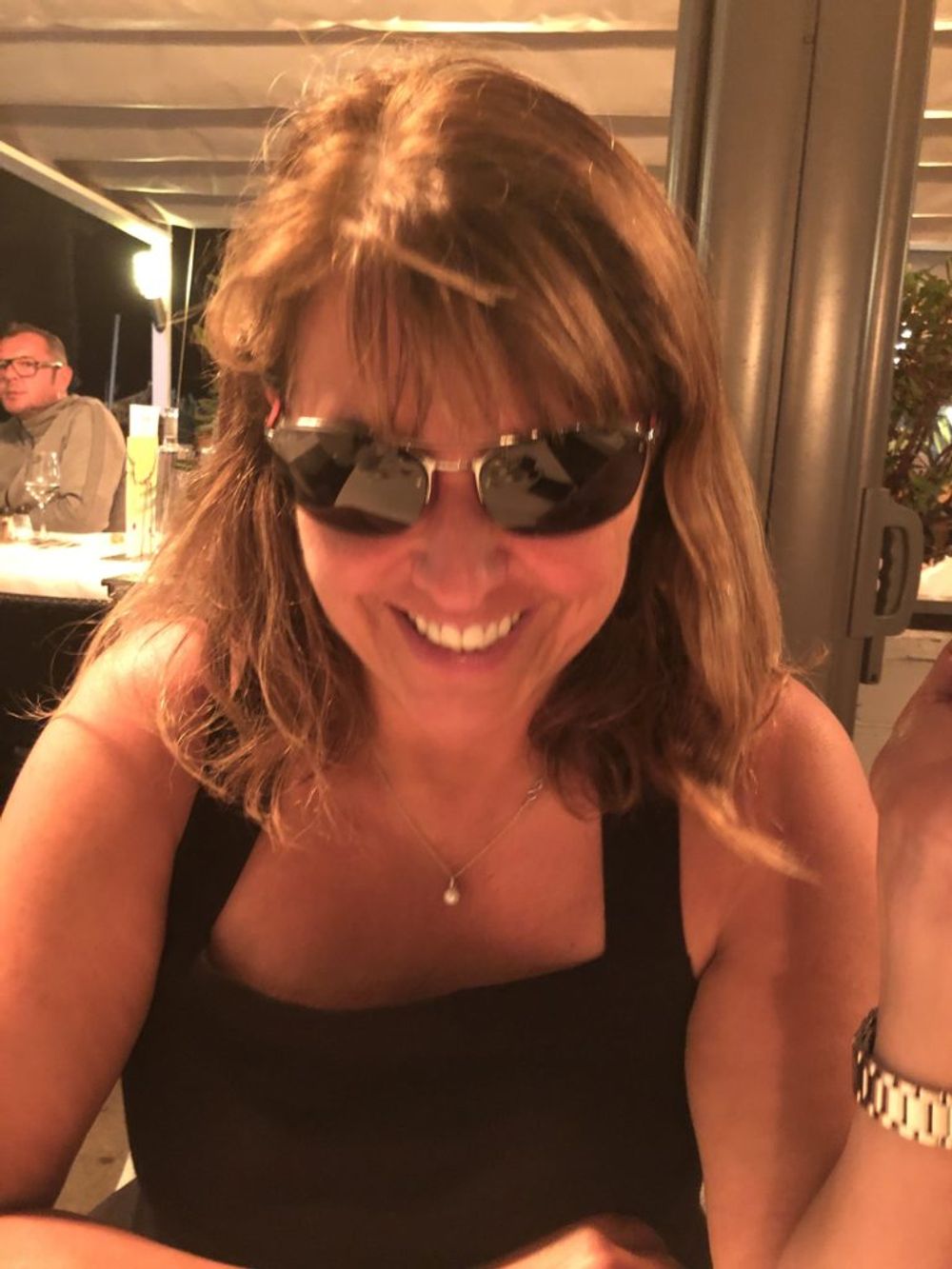
Anne Burchett says she is nervous about publishing her writing for the first time – but also relieved to be able to share her work
I wrote a novel 12 years ago, called Tasting Notes. I meant to find an agent and be published. I sent maybe two dozen query letters through the years but got nowhere. Conventional self-publishing didn’t appeal: I wanted the recognition that comes with being picked by an agent first and then a publisher.
So, for twelve years, I did nothing apart from some frantic yet sporadic editing.
Having an unpublished novel is like being a toddler with a favourite toy. You show it to people you like. Sometimes they love it and that creates a new bond with them. Sometimes they don’t, or worse, they say nothing so you pick up your toy and skulk away, mortified, having found yet another reason to sit on it like a hen on a pebble. That is a French colloquialism by the way. I love French colloquialism.
Having an unpublished novel is also like a bad itch: it doesn’t go away and this one has been itching for so long I finally decided to do something about it.
Starting today I shall serialise Tasting Notes, one chapter at a time, in weekly blogposts on this site. I shall also throw in a few opinion pieces about the novel, wine, writing and life. Please have a read, subscribe if you like it and comment as much as you want.
I am terrified of the exposure. Writing has been my secret garden for such a long time I am not sure how much criticism I can take. Be kind, please.
(You can sign up and follow each chapter as it is published by going to Anne Burchett’s website here).
Chapter 1: A Wine Saleswoman
The alarm rings. I’m exhausted and I haven’t even woken up yet. Outside my bedroom, a door slams and a suitcase rolls past. A man is talking in the loud voice people use on mobiles. I turn over. The pillow is square, French. I open one eye. The light is Mediterranean bright.
I had the same nightmare again last night, like every night for the past six months: I was climbing stairs, lost my balance and tried to grab the banister but it had vanished and I fell backwards, screaming. I woke up, my heart beating like mad.
I sit up and rub the back of my head; it’s throbbing. I look at the air conditioning unit and sure, the green light is on. I turned it off when I left this morning but the maid turns it on when she cleans the room. I swear under my breath and take a sip of water from the complimentary bottle on my bedside table.
The crumpled receipt from last night’s dinner says three covers and four bottles of wine. I drink the rest of the water and scribble a note for the maid: ‘Please do not turn the air conditioning on. It gives me a headache.’
My index finger is stained purple from the red wines I tasted yesterday: I should have used wine pourers. I try to lick it clean but the stain won’t go.
My knees creak when I get up.
The small room is strewn with discarded clothes. My grey suit lies on the floor where I dropped it, the fabric stretched out of shape around the waistband of the trousers. I pick up the jacket and give it a sniff. It still smells of the Chanel No 19 I doused it with in the five minutes I had to freshen up before going out. The lingering perfume competes with the hotel smell of clean laundry, industrial cleaning products and artificial air freshener.
I shower, put the suit on and look at myself in the mirror. I pull my stomach in and look again, sideways this time. I need to lose weight. Being tall is no excuse now I am on the wrong side of forty.
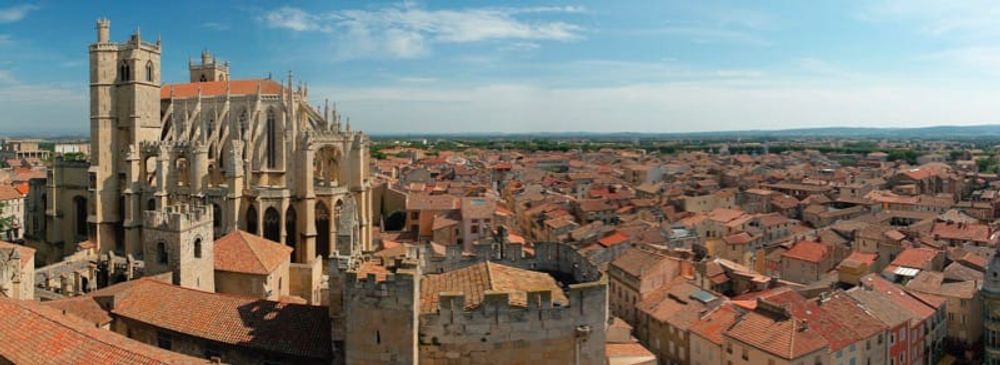
Narbonne: the backdrop to Anne’s first chapter
My laptop yawns on the desk, surrounded by a mess of paper. I have been here too long. I arrived in Narbonne late on Monday; Tuesday morning was spent at Villa’s local winery with Serge, preparing for Tesco’s visit. Serge is Villa’s chief winemaker, a title borrowed from New World wineries and easier on foreign ears than oenologist, the French equivalent. After two days in the tasting room, we ended up in a tapas bar last night with Tesco’s buyer. A debate on the merit of Rioja versus Ribera del Duero ensued, the finer points of which are unclear to me this morning. Serge’s English became more fluent the more he drank; at one point he even dared contradict our guest. The Muga Reserva 2003 was the real star of the evening though, with its powerful fruit flavours, displaying the same grace and balance as an athletic male dancer.
Back at the hotel, I checked my emails, feeling terrific after my copious intake of Rioja. I didn’t tear myself away until well after two. Thank God I’m going home tomorrow.
I glance at the clock: eight thirty.
“Merde!” After almost twenty years in England, I still swear in French.
I grab my mobile. “Serge? It’s Chris. I messed up. I set my alarm for seven but my phone is on British time. Could you please look after Andy if he arrives before me? It’s Tripp with pp at the end. He gets annoyed if you spell it with one p. He’s the buyer for Direct Wines. We can’t mess up: one million customers and it’s his first visit to Villa. My probation period ends in a month’s time, remember?”
I slip lipstick, eyeliner and mascara in my pocket, put my laptop in my bag and run to the lift. I swing by the restaurant to pick up a chunk of baguette and a pain au chocolat and I’m on my way.
Radio Nostalgie is playing in my rental car.
’Ma liberté
Longtemps je t’ai gardée
Comme une perle rare’
“A 1970s classic by George Moustaki,” says the DJ.
It was Papa’s favourite song.
The ten-minute drive to the winery takes me through hills covered in black twisted vines. The leaves have turned from green to yellow and red. Olive trees and oaks adorn a view Cezanne could have painted, pure blobs of colours thrown together within dark outlines.
I pass the sign to Vinassan where Papa lived when he left home. I put my sunglasses on. My eyes hurt.
The smell of the pain au chocolat fills the car. I bite into it, turning to the passenger’s seat, which is soon covered in greasy crumbs.
I reach the gates of the winery at ten to nine. Large pieces of broken glass are embedded on top of the perimeter wall. I hum along to “Hotel California”:
‘You can check-out any time you like,
But you can never leave!’
I stop by the side of the security guard’s shed, safe from the trucks that trundle in and out. I roll down my car window. The place smells of hot dust and rank wine. The guard walks towards me, hands on hips.
“The English woman. You’re still here?”
“I’ve told you before, I’m French,” I say. “Does Legerot sound like an English name to you?”
He shrugs. “You live in England.”
“I’m expecting a visitor this morning: a man in his thirties, tall, blond, English. His name is Andy Tripp. Has he arrived?”
He shakes his head.
“Please don’t take his passport. You can ask to see it but that’s all.”
His face clouds over. “The boss told me to keep the identity cards of visitors while they are on site. No exceptions.”
“British people don’t have identity cards and they dislike being parted from their passports. Remember what happened on Tuesday with the guy from Tesco?”
“Does the boss know?”
“I told Monsieur Lange.” I cross my fingers behind my back.
The guard walks away, muttering to himself.
I scribble “PASSPORT” on my left hand as a reminder to tell Andre Lange I pre-empted his authorisation to bend the rules.
“Hello, sorry, I have another question.”
The guard turns around.
“How long have you worked here?”
“Ten years,” he says.
“Did you know Pierre Legerot?”
“No. Why do you ask?”
“Never mind.”

Anne Burchett says: “Tasting Notes is a work of fiction, loosely based on my professional life. It is first and foremost meant to entertain.”
He returns to his shed and picks up the phone. He is looking at me but I can’t hear what he’s saying. I wait but he waves me on and shouts, “Go. You’re blocking the entrance.” I drive on.
The large pale pink building that houses Villa’s bottling plant in the Languedoc squats in the bright sunlight, surrounded by an impeccable lawn, far too lustrous for the Mediterranean climate. I turn left into the main car park.
“Merde!”
Three out of the four visitors’ parking bays are taken. I stop the car, leave the engine running, and run inside.
“Hello, sorry to bother you but could you please try and keep the last visitors’ parking space free for my guest?”
The girl at reception looks up from her crossword. “I’m not in charge of parking,” she says.
“Come on, there’s never a free space in that car park. We may as well put a sign up saying ‘Visitors Not Welcome’.”
She looks at me blankly.
“Please,” I say.
She sighs. “When is he due to arrive?”
I check my watch. “Anytime now.”
“I’ll see what I can do,” she says and returns to her crossword.
All the other parking spaces at the front of the winery are allocated, the names of the beneficiaries painted in white letters on the asphalt. I park in the one marked Andre Lange and pick up my bag from the boot.
“You can’t park here.”
The receptionist is standing behind me, her arms crossed.
“You almost gave me a heart attack,” say. “I thought you were not in charge of parking.”
She shakes her head. “You can’t park in Monsieur Lange’s space.”
“He’s in Paris this week.”
She shrugs. “So what? Move your car.”
She walks back inside the building without waiting for my answer.
I drive round the building to the shift workers’ parking lot. No names there, it’s a free-for-all. Dusty, scratched and dented Renaults, Citroens and Peugeots are packed like an angry mob around the building’s back entrance. Stickers and dangly gadgets adorn the exhausted vehicles, and towing hooks hint at long summer escapes to Spain or North Africa. I glimpse a Renault 18. I haven’t seen one of those in years. My shiny rented Megane looks quite out of place.
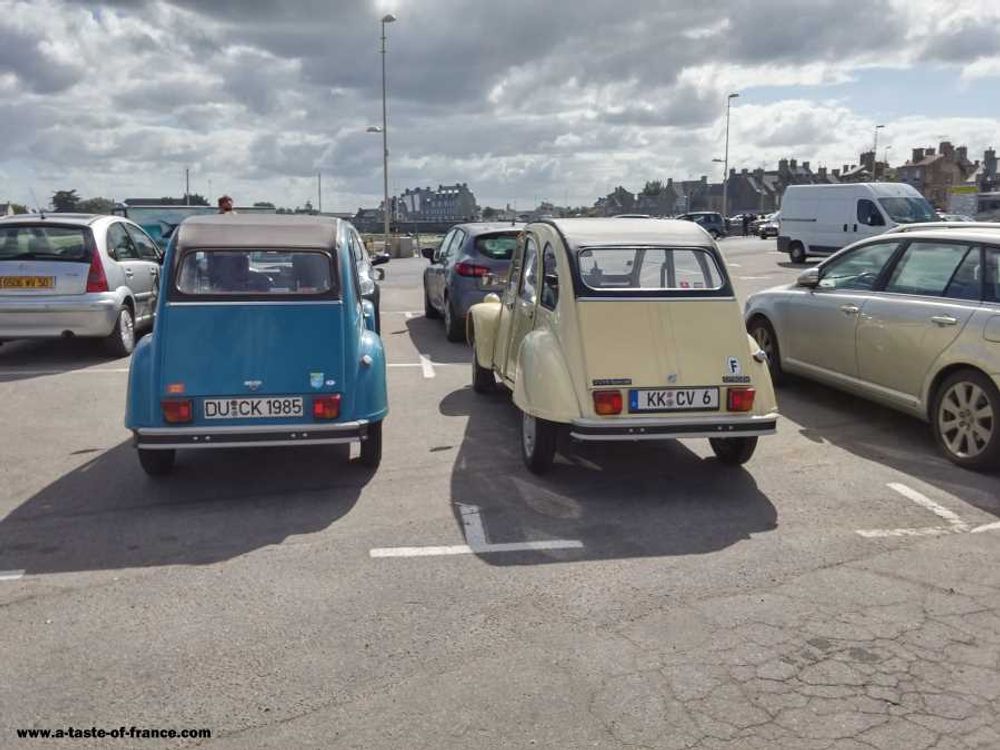
The clanking of the bottling line deafens me as I walk through the back door. The dim corridor stinks of vinegar. In my haste, I almost trip on a bucket full of a foamy red liquid. I move it aside, trying not to drench myself in the process.
I almost jump out of my skin when I look up. Jean Jacques, one of Villa’s wine buyers, is standing right in front of me.
“Why are you coming in this way?” he says.
“Good morning, Jean Jacques. How are you?”
He doesn’t smile. “I asked you a question. What took you so long anyway?”
“You’ve asked me two now. I’ll answer one. I came in this way because there was nowhere to park at the front. How do you know what time I arrived?”
He blushes.
“Did the security guard call you?”
I point at the bucket. “It’s a bit of a trap in here. Not sure Monsieur Lange would be impressed. Now if you don’t mind, I’m in a bit of a rush.”
He looks at the bucket, at me, and at the bucket again. He swears under his breath and picks the bucket up.
I walk past him, my head high. He follows me, slopping bucket in hand. I turn around when I arrive at the tasting room but he has vanished. I close the door behind me and blink in the bright sunlight reflected on the white tasting benches.
Hints of lemon peel and oxidised alcohol linger in the air. The wines we tried yesterday have been cleared away and packed into crates, which wait on trolleys to be carted off to the lab and disposed of. Six dozen freshly washed glasses hang upside down by the sink and two large self-standing spittoons have been positioned in the middle of the room to allow several people to taste together in comfort. A few biros lie on the table, soldiers ready for battle.
I give Serge a peck on each cheek, French style.
‘Timotei?”
“Spot on,” he says. “You’ve made good time.”
I check my watch. “I have, even though everybody I’ve met so far seemed intent on slowing me down.”
He raises his eyebrows.
“The security guard was his usual obnoxious self, the girl at reception wouldn’t let me park in Andre Lange’s space and Jean Jacques ambushed me as soon as I set foot in the building.”
He laughs. “You parked in Andre’s parking space?”
“What’s the big deal?”
He pats me on the shoulder. “Let’s get down to work.”
The young laboratory assistant has sleep in her eyes. The other one’s hair shows the indentations from his comb. In honour of today’s visit, both have put on clean white coats which hang askew, the folds still marked in the fabric.
As I’ve kissed Serge, I have to kiss the other two as well. I draw in bad breath and coffee smells.
I turn back to Serge and whisper, “We’ve agreed to ban daily kissing in the English office.”
“You’re in France today,” he says.
He is wearing a crisp Villa-branded polo but he hasn’t shaved.
“Did you come back here straight after dinner?”
“I had samples to prepare for Auchan. How did you guess?’”
I point at his top. “You use the marketing department’s cupboard as an emergency wardrobe when you haven’t got time to go home.”
“I had a wash,” he says.
“In that bottom-of-the-range Portaloo Andre calls a staff shower? Well done. Did you sleep at all? I need you on top form.”
“There’s a couch in one of the meeting rooms.”
“You’ll make yourself ill.”
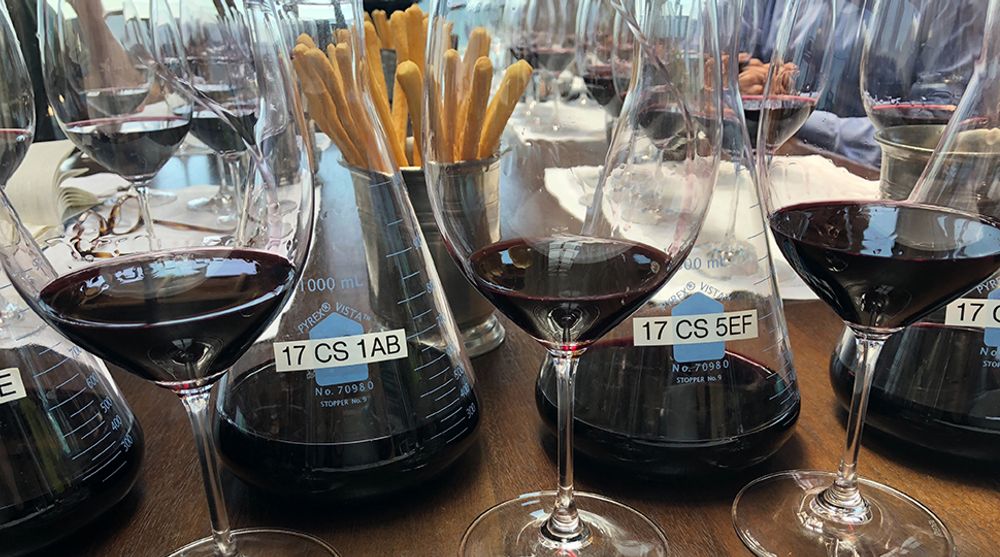
“This time of year is tricky.” He points at the scribble on my hand. “But at least I’m not going mad. Can’t you use Post-it Notes instead of tattooing yourself with your to-do lists?”
“Post-it Notes get lost. My hands don’t,”I say.
I crouch in front of the tasting table.
Serge has lined up fifty samples for Andy to try. Only nine weeks after the harvest, their colour varies from pale lemon to light gold. Some show hints of green.
“I’ve had to be selective,” says Serge. “The summer was even hotter than usual in the Languedoc and the alcohol in some of the wines went stratospheric as a result.”
“What about the reds?”
Serge nods. “The new vintage won’t be ready to taste till early January but it’s likely to be the same. Should we have a quick taste before Andy arrives?”
I pick up a glass. I love these sneak previews. I’ve come a long way since I tasted my first wine with Papa, but I am still learning.
On the nose, the wines display the exuberant primary aromas characteristic of their extreme youth. On the palate, they vary from grassy-green asparagus flavours for the Sauvignons to tropical mango and pineapple notes for the Chardonnays. One of the Viogniers tastes like ripe apricot.
“This one’s fabulous,” I say.
“It’s got sex appeal but it lacks acidity. It won’t last. If we keep it, we’ll need to blend it with something sharper. What about the third Chardonnay?”
“Not my favourite, not enough expression.”
“It’ll develop though. Give it three months and it’ll be a bomb. I wonder how it’d go with your Viognier.”
Serge picks up a pipette.
“Haven’t you forgotten something?” I ask.
He turns around, pipette aloft.
“Shouldn’t we wait for Andy?”
He bursts out laughing. The morning’s exhaustion has evaporated.
Reception calls to let me know my visitor has arrived.
“Andy, good to see you! Found us all right?” I plant kisses on both his cheeks. It’s part of the commercial package.
In my efforts to entice him here, I’ve forgotten how unpleasant he looks: his suit hangs awkwardly on his tall gangly frame and his lank hair is combed back in a style last seen in the nineteen-twenties. His collar is too tight; angry spots cover his neck and merge with the freckles on the pale skin of his face. Hours in the tasting room have stained his teeth to the point of no return and his sharp nose is the colour of a mature Margaux. He passed his Master of Wine exam at the first attempt though, and he’s a brilliant taster. That’s all Serge and I need to concern ourselves with.
“Another supplier dropped me off, thanks.”
“We have great wines for you,”I say.
“Haven’t you sold the lot to Tesco?”
“Who’s been talking?”
“They’re going to Val d’Orbieu tomorrow, at the time I’d planned to go.”
We walk back to the tasting room and I spare a fleeting thought for the poor sod who had to tell Andy that Tesco’s visit takes priority over his.
“Hi Serge, good to meet you.”Andy and Serge exchange a formal handshake.
“Would you like a tour of the winery or would you prefer to look at the wines first?” I ask. Showing visitors round the Narbonne premises is one of my secret pleasures since I joined Villa. This place meant so much to Papa.
“Let’s see what you have to offer. I’ll do the visit later if it’s worth my while.”
I hand Andy a tasting sheet. He looks at the scribble on my hand and frowns.
“Here’s a list of the samples we’ve prepared.” I hide my hands behind my back to rub the ink off.
“We’ve put the Sauvignons together, then the Grenaches and the Chardonnays.”
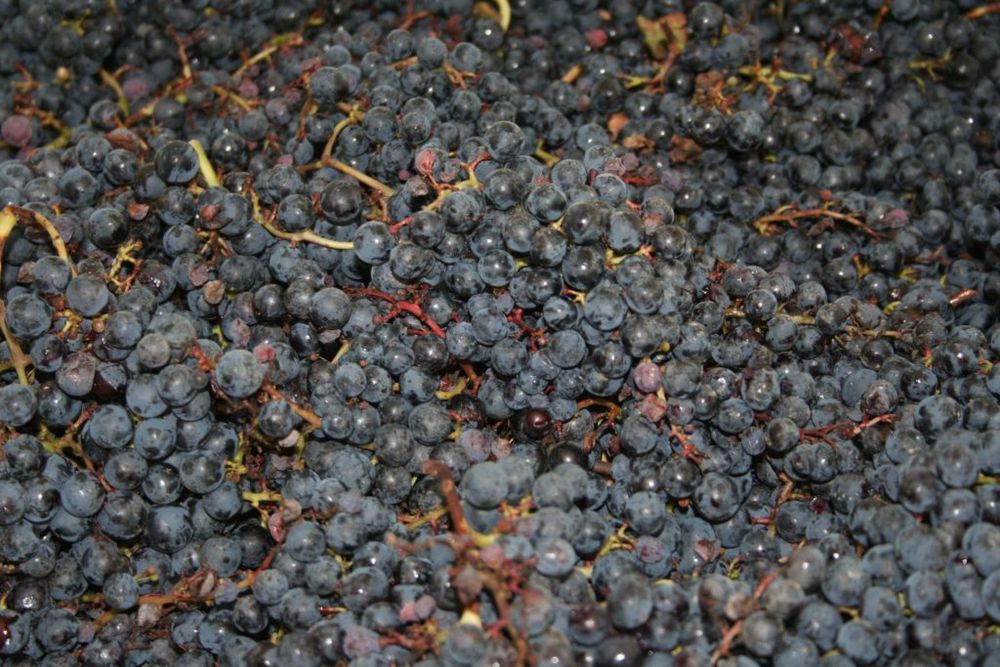
“I don’t want to taste the Grenache Blancs,” he says. “They’re not great wines and the name means nothing to consumers.”
“I was thinking of a £3.99 Vin de Pays blend.” I now have a black smudge on my hand. I try to lick it clean.
“Can you do £3.49?” Andy attacks.
I parry. “Not with the latest duty increase.”
He lunges, displaying both his secret weapon and his awful teeth. “You do a £2.99 for Tesco,”
I riposte. “Their margin requirements are lower than yours.”
“Chris, I’ll only consider buying from you if you offer me value for money. Otherwise, I’ll stick with my current suppliers.” At this point I expect him to throw his virtual sabre on the floor and go sulk in a corner.
He turns to Serge instead. “When did you start picking?”
“Around the 20th of August for the Chardonnays in the plain. The Merlots kicked in early September. We had a healthy crop but volumes are down.”
“You list two Chardonnays, don’t you?” I say. “One at £4.99 and one at £6.99? Do you want two Sauvignons as well?”
“No, over £6 people either go for New Zealand, Touraine or Sancerre. It’s too hot for premium Sauvignon down here. You don’t get enough acidity.”
Andy knows what he wants.
We sip, swirl and spit the first wines in complete silence. Andy writes copious notes on the crib sheet I gave him. We’ve been at it for almost an hour when my mobile rings. I feel my face turning red. As a joke my friend Sam changed my ringtone to “Mambo Number Five” on Sunday, and I forgot to change it back. I should have turned my phone off anyway, and Andy looks up from his glass with a frown. I mouth a silent apology.
I’m just about to press the off button when I see the call is from Rachel, The Super-Market’s wine buyer. She’s one of our largest customers and she’s in the middle of reviewing her Bordeaux range. It’s a huge chunk of business. I sent my quote ten days ago and, last time we spoke, she hinted she was keen to consolidate her French supply. I must take her call.
I don’t want Andy to feel slighted though. Like most buyers, he’s easily upset. My finger hovers in mid-air.
What if Rachel is calling to say we’ve won the tender? Will she change her mind if I don’t pick up? Maybe she only needs to ask me a quick question? I need this new business. To pull such a coup, two months after joining Villa, would be fantastic.
Andy is watching me. I can see he expects me not to take the call. I clear my throat.
“Sorry Andy, it’s my neighbour. It must be an emergency. Do you mind?” It’s my second lie today or maybe my third. I’ve lost count.
Andy grimaces the approximation of a smile.
It’s ten o’clock French time, nine in the UK. I retreat to a corner of the room and put on my hello-dear-buyer-this-is-the-call-I-have-been-waiting-for-all-my-life voice.
“Rachel, how are you?”
Silence. She must have dialled the number on hands-free. I wait for the click that will indicate she has picked up. I feel alert, on top of my game.
Success is only seconds away.



